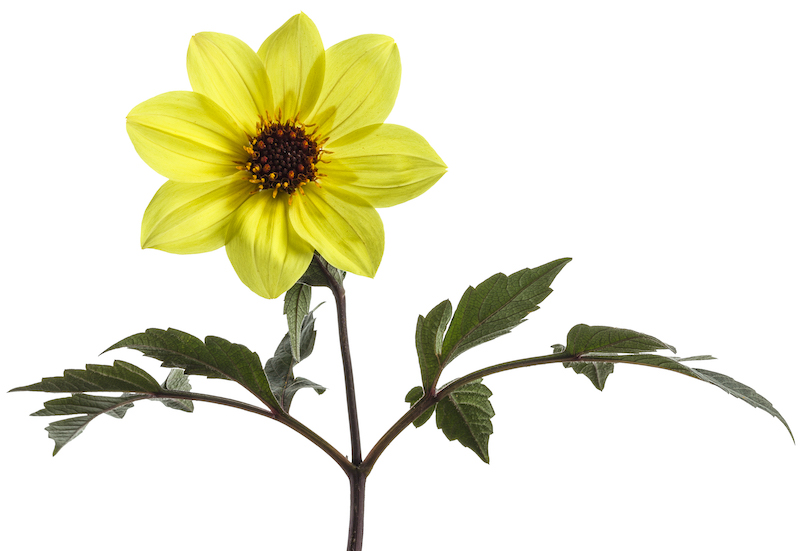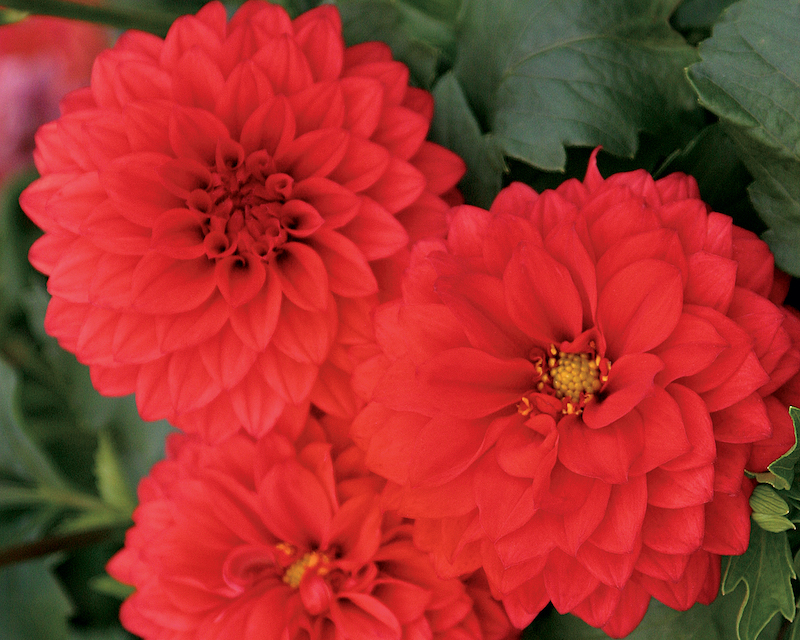Dahlias are a well-known and loved staple for many gardeners across the world. Did you know they can also make a tasty snack for humans? They are just starting to make their way onto the culinary stage worldwide. However, these plants can be poisonous for pets! Don’t be frightened much about this though because most pets will naturally stay away from them. While they are captivating to our eyes, their sights and smells aren’t too alluring for pets.
You should always monitor your pets closely though if you know them to be a little too curious in the garden. Symptoms of Dahlia poisoning in pets range from an upset stomach to itchy skin. If you suspect your pet has gotten into anything they should not have, take them to the vet immediately. In most cases a veterinarian can diagnose and treat Dahlia poisoning quickly and easily.

Are Dahlias Poisonous to Children?
Dahlias are totally safe for children. No part of the plant is poisonous to people, so your kids can roam the garden freely! In fact, since the plant is edible, you could use them as a learning tool for your children. Flavors and textures vary greatly across different Dahlia varieties. Perhaps you and your children could have a competition as to who can make the tastiest flower for dinner!

Are Dahlias Poisonous to Dogs?
Dahlias are poisonous to dogs. Any animal is more sensitive to toxins when they are younger, so be watchful of puppies. Puppies are also well known to be a bit more clumsy. They see the world party through their mouths. The toxic substance in Dahlias is at this point still unknown. It causes gastrointestinal upset if consumed and dermatitis (skin irritation) if it comes into contact with the skin. Your dogs should not be naturally attracted to Dahlias as their smell isn’t enticing to animals.
Are Dahlias Poisonous to Cats?
Cats are also susceptible to Dahlia poisoning. The same symptoms and issues that apply to dogs also apply to cats: gastrointestinal upset and dermatitis. The severity of the case depends on how much plant matter your furry friend came into contact with. Cats may be a bit more attracted to the plant simply because of their natural curiosity. The big blooms may look like toys to them, or the bees and butterflies may attract them as well. If you are concerned about Dahlias and pets in your garden, perhaps planting them somewhere your pets do not typically wander, or behind a gate, will bring you some peace of mind.
Are Dahlias Poisonous to Other Animals?
Dahlias are not naturally very attractive to wild animals or other pets you may keep. Deer and rabbits know to stay away from them, so you do not have to worry about poisoning the neighborhood! The only other animal that may come into contact with Dahlias and experience symptoms are horses.

Symptoms Of Dahlia Poisoning
Dahlia poisoning in pets can present as internal or external symptoms, or both. Below are some common symptoms of Dahlia poisoning in cats and dogs. Always check with your veterinarian for guidance if you suspect Dahlia poisoning.
Here are some common symptoms to look out for:
- Rash
- Blisters
- Itching
- Abdominal pain
- Diarrhea
- Vomiting
- Mild dermatitis
- Red, irritated skin
Preventing Dahlia Poisoning
The best way to keep your pets safe from Dahlia poisoning would be to just keep them away from the plants! If you have pets that roam, plant your Dahlias away from where they normally explore. Or you could plant them behind a fence or other barrier. You can use deterrents if your furry friends are relentless with the plants. Or try to distract them and encourage play in other areas outside of your house. Dahlias won’t naturally attract your pets, so hopefully you won’t have to worry about your pets bothering them!
Pet Poison Helpline
If something were to happen to your furry friend, and you suspect that they are suffering from Dahlia poisoning, there is a poison control hotline to call for 24/7 vet advice. It is called the Pet Poison Hotline, and their phone number is (855) 764-7661.
Sources:
"Dahlia." American Society for the Prevention of Cruelty to Animals. aspca.org
"Eating Dahlias." Hungry Onion. hungryonion.org
 |
Author Chris Link - Published 01-24-2023 |
